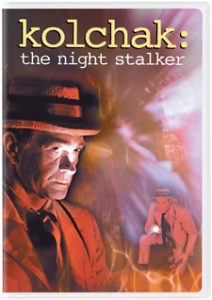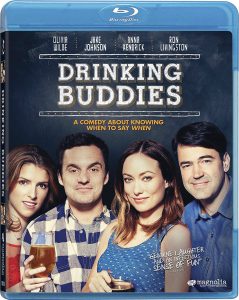“Drinking Buddies” is proof that a movie can be enjoyable to watch even if it fails to make a resonant thematic point. It realistically shows how romances and relationships operate thanks to naturalistic, almost improvisational, performances by four actors playing likable, flawed characters. It had me smiling and frowning. Yet I doubt I’ll remember this film for long because it never delivers a verdict of any kind; it feels profound when you watch it, like a conversation about the meaning of life five beers into the night, but it’s completely forgettable the next day.
Despite often playing lazy dudes, Jake Johnson seems to get more movie work than all the other “New Girl” cast members combined. In “Drinking Buddies,” written and directed by Joe Swanberg, Johnson plays a brewmaster at a microbrewery, presumably in Wisconsin. Olivia Wilde is the brewery’s secretary; always playfully joking around, the two of them are basically work spouses, as both have significant others outside of work — Anna Kendrick and Ron Livingston.
When the foursome spends a weekend at Livingston’s cabin on Lake Michigan, it’s clear to the viewer that not only should the outgoing Johnson and Wilde be together, but so should the more introverted Kendrick and Livingston, who kiss on a picnic hike while the other two are back at the cabin giggling over a sandwich and poker game. (Yes, these guys’ dilemma is between Anna Kendrick and Olivia Wilde; let’s just say it’s a Hollywood-ized take on a real-world situation.)
From that point forward, I figured “Drinking Buddies” would be an exercise in maneuvering things so the couples swap around and end up with the more compatible partner. But — I suppose to the film’s credit — it’s a bit more complicated than that. And also less complicated. Essentially, “Drinking Buddies” is just a series of mundane events — moving from one apartment to another, brewery banquets, and of course, bar outings. Some IMDB commenters questioned why a film was made about events that could’ve come from absolutely anyone’s life. That’s actually what makes “Drinking Buddies” so engaging, albeit only because the cast is so talented.
I sympathize with the other major criticism, though: that the film ends in the middle of the story. When a film uses this tactic, it’s because either: 1, the resolution of the plot is so obvious that it’s more artful to not actually show it; 2, the ending is not obvious, but it’s a more artful move to have audience members debate how it was going to end; or 3, the ending is irrelevant to the point being made, so to show an ending would be to muddle the film’s message.
The first possibility does not apply here, since Johnson is on good terms with both his girlfriend Kendrick and his “work wife” Wilde, just as he was at the start of the film. It’s not at all obvious which one he’ll choose as a life partner, or even if he will ever make a choice, or if either of the women will choose to remove themselves from the love triangle. As for the second possibility, there’s too much evidence piled in each corner for a debate to be fruitful.

As such, I think Swanberg was aiming for No. 3: The point of “Drinking Buddies” is just to wallow in this true-to-life situation where a guy loves two women, both of whom love him (and none of whom are predisposed to a polygamous relationship). Again, it’s easy to make “boo-hoo, woe is him” jokes about Johnson being caught between two such gorgeous women. So it’s a credit to “Drinking Buddies’ ” performances that they bring a viewer so intimately into these romances and friendships; I often felt like I could see the gears of conflict spinning in each character’s mind.
Still, I don’t know if that achievement is enough to justify the abrupt ending. Another 15 minutes of film could’ve made this a more memorable movie.

